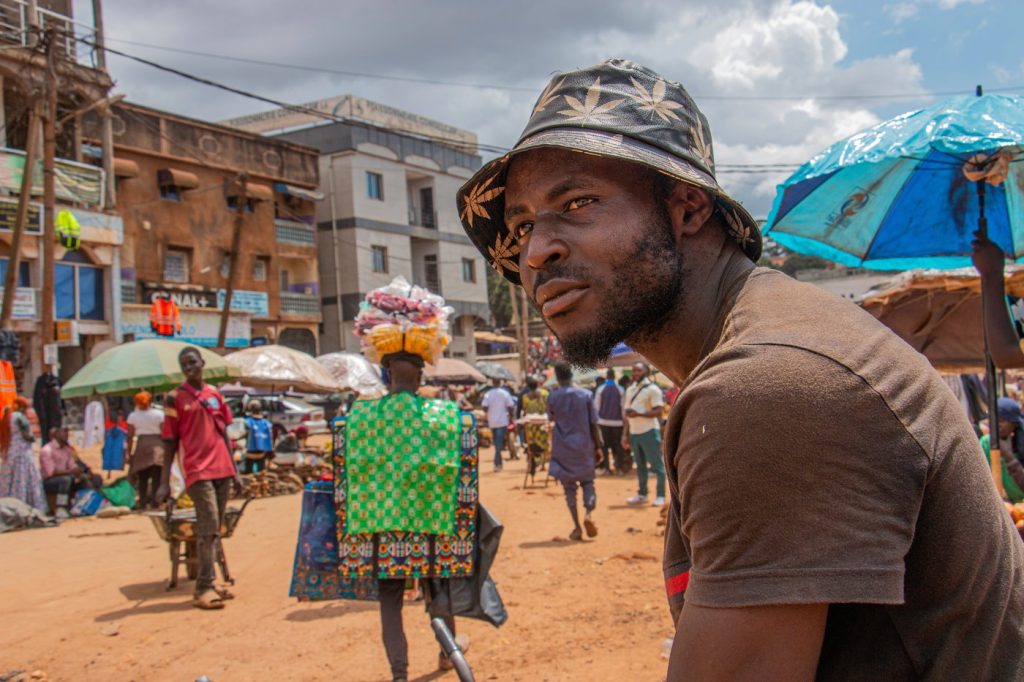YAOUNDE, Cameroon (AP) Elvis Nghobo, a 34-year-old from Yaounde, Cameroon’s capital, faced challenges in gaining admission to four different professional schools. Frustrated by his failed attempts, he resorted to selling food at a local market. Nghobo attributes his struggles to a corrupt education system that favors the children of elites. As Cameroon prepares for the presidential election scheduled for Sunday, he has decided not to participate in the vote, believing the outcome is predetermined in favor of 92-year-old Paul Biya, the world’s oldest president, who has been in power for Nghobo's entire life.
Nghobo reflects a sentiment shared by many young Cameroonians, where the median age is just 18 years. This highlights a growing disconnect between Africa’s youthful population and its aging leadership. Biya, who first assumed the presidency in 1982 after the resignation of his predecessor, Ahmadou Ahidjo, is seeking an eighth term in this election, with 8.2 million registered voters. He has won the last seven elections uncontested and the country has only known two leaders since its independence in 1960.
In his announcement for another term, Biya mentioned the pressing challenges facing the country amid a challenging international environment. He expressed that he cannot abandon his mission without elaborating on specific plans. The youth of Cameroon are especially eager for job opportunities, with World Bank data revealing a 3.5% official unemployment rate. However, a staggering 57% of workers aged 18 to 35 are employed in informal sectors, signaling that economic growth is not reaching the broader population.
Cameroon is currently grappling with significant security issues. The western region is experiencing a secessionist struggle primarily among English-speaking citizens who feel marginalized by the French-speaking majority. In the northern part of the country, the Boko Haram insurgency continues to spill over from Nigeria, leading to routine attacks on border towns.
In this electoral cycle, Biya faces nine opposition candidates, including former allies such as Issa Tchiroma Bakary and Bello Bouba Maigari, who held ministerial positions under Biya’s administration. Maurice Kamto, a prominent opposition figure who secured 14% of the votes in the 2018 election, has been barred from running again due to disqualification by the electoral commission, which claimed his party was sponsoring another candidate. Kamto has denounced this ruling, asserting it is a tactic to suppress real opposition. His past advocacy for electoral fairness led to his arrest after the previous elections.
Wilson Tamfuh, a law professor at the University of Dschang, notes that many opposition candidates are former ministers who recently resigned, which raises suspicions among the youth about political alliances and intentions. They perceive this as “belly politics,” reflecting a strategy to weaken true opposition in exchange for presidential favor.
Political analysts assert that the Cameroonian elite are resistant to disrupting the political status quo established during Biya's long reign. Despite Biya's unpopularity, he enjoys backing from numerous elites and traditional leaders through corruption and financial support which plays a critical role in maintaining his grip on power. The ruling party, Cameroon People’s Democratic Movement, holds substantial control over the legislative bodies, with 94 out of 100 Senate seats and 152 out of 180 seats in the National Assembly.
Biya's health is routinely the subject of speculation due to his frequent absences in Europe for medical care, which has led to his governance being largely handled by senior party officials and family members. Commentators suggest that his desire to remain president until his death stems from both personal ambition and the interests of his political party, which views him as a stabilizing figure.
On the campus of the University of Yaounde I, 27-year-old geoscience student Manoung Wilfried expressed disenchantment with the candidates, stating that none have inspired him, and emphasizing that Biya should pass on leadership to someone more capable of addressing youth issues. In a similar vein, Nghobo articulated his loss of faith in the electoral process, asserting that genuine power change may need to occur through alternatives to the ballot box.











